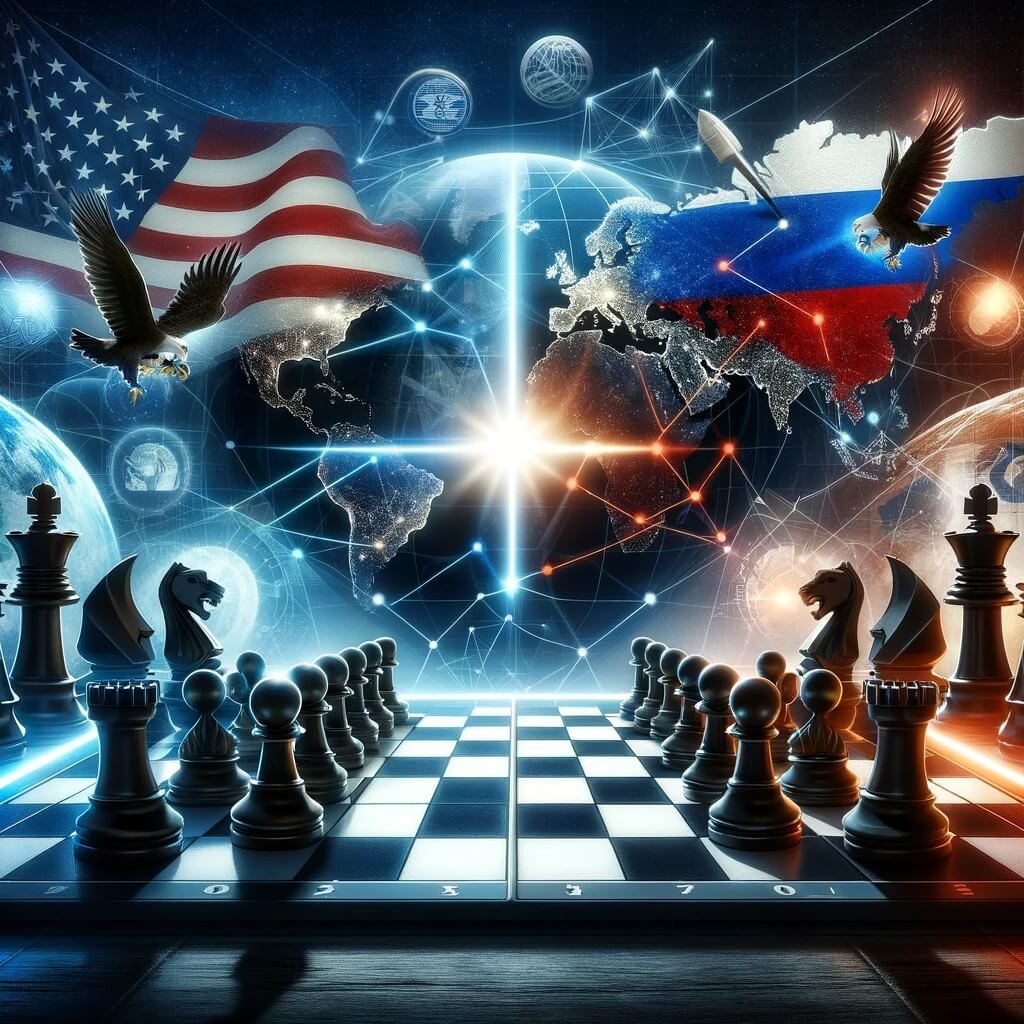Russia’s strategic endeavors, consistently aimed at challenging the preeminence of the United States on the global stage, present a multifaceted geopolitical puzzle. This intricate dance of power and influence unfolds across various domains, from military conflicts to energy politics, revealing a complex web of ambitions and counteractions.
Geopolitical maneuvering and the Ukrainian conundrum
Vladimir Putin’s vision for Russia extends far beyond the territorial confines of Ukraine. The ongoing conflict, while primarily focused on territorial gains, also serves as a testing ground for Russia’s ability to reshape the global order and weaken U.S. leadership. Despite Russia’s significant military engagement in Ukraine, the anticipated submission of Ukrainian sovereignty and identity remains elusive. The steadfastness of Ukraine’s resistance, coupled with their aspiration to integrate with the West, continues to frustrate Russian objectives.
On the diplomatic front, NATO’s expansion post-February 2022 invasion, with Finland’s induction and Sweden’s impending membership, signifies a strategic setback for Russia. Furthermore, Europe’s decisive pivot away from Russian energy dependencies marks a significant shift in the continent’s geopolitical alignment. While fissures within the EU, particularly Hungary’s ambivalent stance towards Ukraine, provide some leverage for Russia, these are not substantial enough to derail the collective support for Kyiv.
The sustenance of Western backing for Ukraine, albeit fraught with political complexities and resource constraints, remains a critical factor in the ongoing conflict. The U.S., under President Biden’s leadership, continues to emphasize its commitment to Ukraine, navigating the intricacies of domestic politics and transatlantic relations. The endurance of this support, amid changing political landscapes and economic pressures, is a crucial determinant of the conflict’s trajectory.
Economic foundations and the Sino-Russian equation
The economic dimension of Russia’s foreign policy is equally crucial. Sanctions and the war’s demands have exacted a toll on the Russian economy, albeit not to a breaking point. The redirection of Russian energy exports, notably to Asian markets like India, China, and Turkey, demonstrates adaptability in the face of Western sanctions. However, this strategic reorientation raises questions about the long-term implications for Russia’s economic and geopolitical positioning.
Russia’s relationship with China emerges as a critical element in this economic calculus. The symbiosis in their opposition to the U.S.-led order, coupled with enhanced military cooperation, underscores a significant realignment in global power dynamics. While the war in Ukraine has cemented Russia’s economic dependence on China, it also amplifies the asymmetry in this partnership. The sustainability and future trajectory of the Sino-Russian alliance, amid evolving global challenges, remain subjects of keen observation.
Global repercussions and future prospects
Beyond the U.S. and Europe, global reactions to Russia’s actions in Ukraine are mixed. While many countries express disapproval, others perceive opportunities in engaging with Russia, reflecting the complex nature of international relations in a multipolar world. Russia’s outreach to diverse nations, including strategic engagements in the Middle East and initiatives within the BRICS framework, illustrate efforts to forge alternative alliances and challenge U.S. dominance.
However, the success of these endeavors is not uniform. Russia’s growing ties with nations like Iran and North Korea are juxtaposed against strained relations with former Soviet republics and other regional players. The outcome of these diplomatic ventures, particularly in the context of the 2024 U.S. elections and their implications for Western support of Ukraine, will be pivotal in determining the trajectory of Russia’s global influence.
In essence, Russia’s quest to challenge U.S. dominance manifests across multiple fronts, marked by tactical gains and strategic challenges. While certain successes are evident, the comprehensive achievement of its objectives remains a complex and evolving endeavor, contingent on an array of geopolitical, economic, and diplomatic factors.





